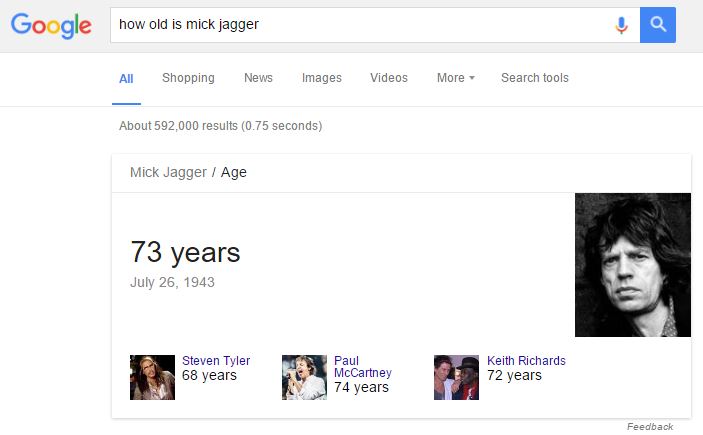The key to a successful SEO strategy is understanding how people, and in particular, prospective customers, search the web. In this article, we are going to have a look at the three key ways in which people search, so you can effectively understand the searcher’s intent behind different types of keywords and more effectively target prospects with relevant content on your website.
1. Navigational Queries
This is a search query with an intent to visit a specific site or page – that is, the searcher is actively looking for something that they know to exist.
Examples of navigational searches could be:
- Google (yes, people actually google Google)
- www.yourwebsite.co.uk
- your brand name
- brand name and page (Bowler Hat SEO / Gap men’s coats)
2. Informational Queries
An informational query is a question looking for an answer – it can be researched at a broad or highly specific level. Often the user will have no specific source in mind. These could be:
- how old is Donald Trump?
- what is the time in New York?
- natural remedies for a cold
- best exercise to build muscle
- best 40″ TVs
- how to build a website
- SEO tips
As Google and the other search engines develop many of these, questions are answered directly by the search engine:

Not all questions and answers are this simple, though, so more complex questions return links to websites providing those answers (and often a combination of a partial answer from the search engine and then informational resources).
3. Commercial / Transactional Queries
These queries are typically driven by an intent to buy. This intent can be quite loose, or the beginning of a journey towards a purchase, or can be much more urgent in their requirement:
- gas BBQ
- BBQ gas vs coal
- best gas BBQ 2016
- gas BBQ special offers
- gas BBQ sales
- best price gas BBQ online
- locksmith
- emergency locksmith
- emergency plumber
- 24-hour plumber
With these transactional queries the intent is not always so clear, and search for “gas BBQ” could be a search for information as to how good gas BBQs are. It is still however connected to a potential desire to purchase a bbq and as such may be the first step in a journey towards a purchase. A query like “Outback Saturn BBQ best price” is much further along this journey and has a real serious commercial intent behind it (and as such would be a good fit for a highly targeted PPC advert or well positioned organic listing for that product).
Go, Know & Do
Google classifies these queries as go, know and do and whilst exact figures are hard to come by, the general rule is as follows:
- Go: navigational queries = 10% search volume
- Do: transactional queries = 10% search volume
- Know: informational queries = 80% search volume
It’s important to note here that 80% of the search volume is typically these informational searches, yet most businesses focus only on the 10% of commercial queries. Giving some thought to the know queries allows you to position your business in front of customers at the beginning of the journey that may well start with a search for information but slowly progresses towards commercial intent. Developing visibility for your business here builds brand exposure, credibility, and the potential to target users with special offers. Smart digital marketers will also connect these views and visits with remarketing and other tactics to maximise the return on the initial exposure.
Understanding Intent
An important part of your SEO strategy should always be understanding the ways in which potential customers search for your products and services. Even more so, how these prospects search around the problems that your product or service solves. Armed with this knowledge, you can effectively structure the content and architecture of your website to map to the full range of search terms that your potential customers are using.
If you would like to learn about the different types of SEO packages out there or want to learn some more small business SEO tips then have a look around our blog, we’re filled with answers to your questions!






